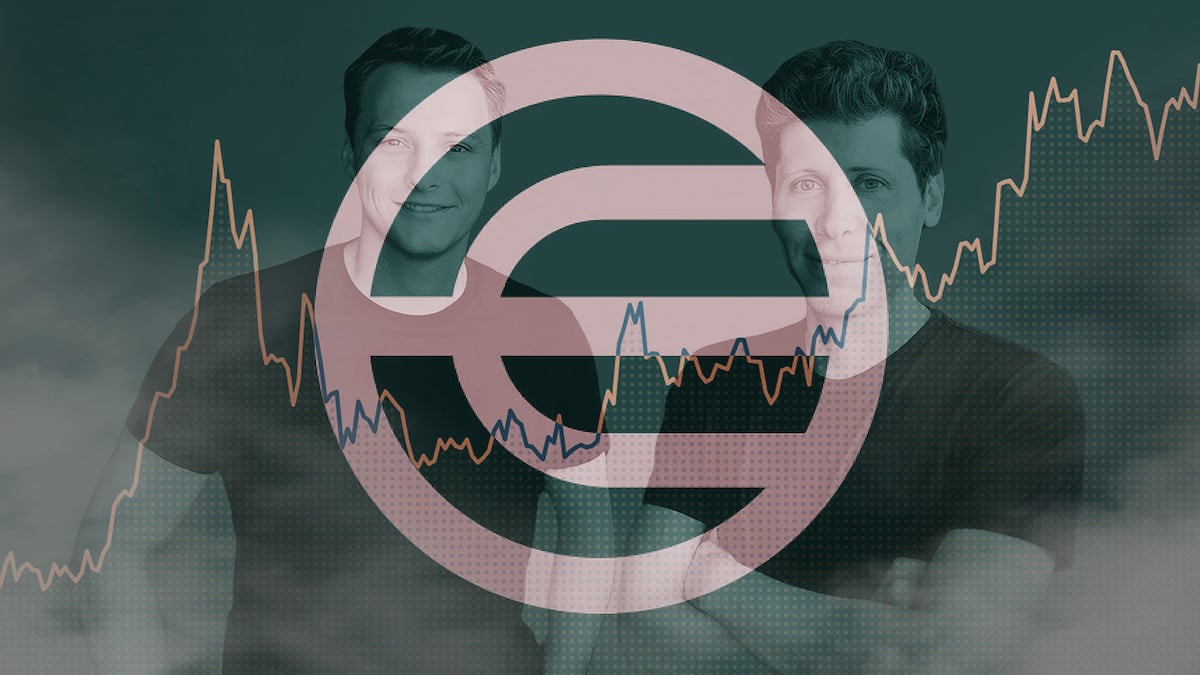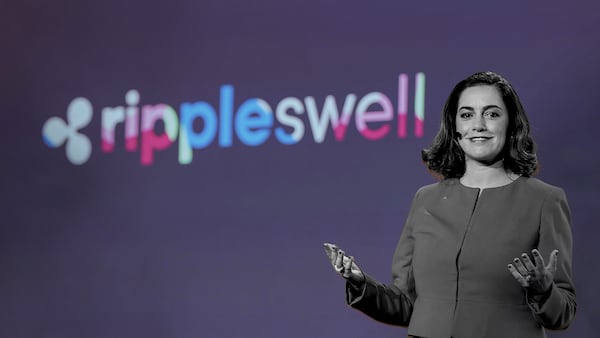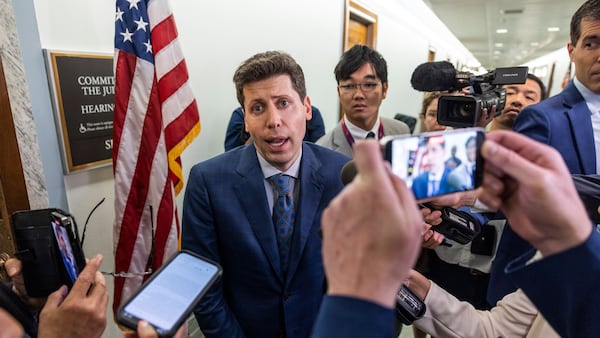- Market makers controlled more than 90% of the supply of Worldcoin’s token, WLD, when it launched on Monday.
- At $2.30, WLD has a fully-diluted value greater than ADA, SOL, and stETH.
- That number could fall as the remaining 98% of WLD supply comes online in the coming years.
- Worldcoin says it’s part of a plan to distribute WLD to “the majority of humans who are alive today.”
Worldcoin, Sam Altman’s crypto-based solution to a world overrun by artificial intelligence, stumbled out of the gate this week, attracting scrutiny for a token launch that critics say will benefit market makers at the expense of retail investors.
‘People can lose a lot of money just buying these things at launch’
— Matt Batsinelas
“People can lose a lot of money just buying these things at launch,” Matt Batsinelas, founder of Glass Markets, a crypto market data provider, told DL News.
Worldcoin has loaned market makers more than two-thirds of the initial supply of the new token, WLD, according to Worldcoin’s whitepaper.
But the terms of the agreement could make the token a risky short term bet, according to an expert who spoke to DL News.
After three months, the market makers can return the tokens, or buy them at a predetermined price, known as a “strike price.”
As such, market makers had an incentive to ensure WLD traded above the strike price. If each had been loaned the same amount and opted to purchase their entire allotment, the strike price would be $2.80, according to a formula included in the whitepaper.
But the strike price could vary based on market makers’ allotment and the amount they ultimately decide to buy.
“They had an incentive to open it up above that … so they could sell some risk-free,” said Batsinelas, who tracked the launch of WLD. “It wouldn’t make sense to sell below.”
Indeed, if the entire 10 billion supply of WLD were in circulation, the token would have a market capitalisation greater than major tokens such as Cardano’s ADA, Solana’s SOL and Lido’s stETH.
Worldcoin did not respond to a request for comment.
According to its whitepaper, it partnered with market makers “to ensure sufficient liquidity for WLD traded on centralized exchanges outside the US, to facilitate price discovery, and to enhance price stability of WLD.”
Iris-scanning orbs
Worldcoin is meant to address a growing concern: that our increasingly digital lives, coupled with artificial intelligence, will eventually make it difficult to tell people apart from the software meant to mimic them.
It was founded by Altman, who is also the founder of OpenAI; Max Novendstern, who has since left to found AI firm Mana; and Alex Blania, now the CEO of Worldcoin’s parent company, Tools for Humanity.
Worldcoin has built an iris-scanning device, called the Orb, to collect biometric proof of a person’s “uniqueness and humanness.” Worldcoin has said any biometric data is erased after users prove their identities.
Those who prove their identity are awarded WLD tokens, which are to form the basis of a “new identity and financial network.”
WLD has a fixed supply of 10 billion tokens, most of which Worldcoin aims to distribute over the coming years to “the majority of humans who are alive today.”
That process began in earnest on Monday, when Worldcoin minted its token and began to distribute Orbs en masse. People who had been given pre-launch access to an Orb began claiming their WLD allotment.
Two days later, however, more than 90% of tokens in circulation were controlled by market makers.
Market makers serve a key function in the world of finance by providing liquidity to assets whose value might otherwise swing wildly during large trades.
They are often loaned tokens for a fixed period, with the option to buy them at a predetermined price.
Their near-complete control of the WLD supply allowed them to effectively set the price of the token on exchanges, according to Batsinelas.
NOW READ: Retail feared that insiders would dump Optimism’s $500m token unlock — so they mass dumped it first
On Tuesday afternoon, WLD was trading between $2.20 and $2.30, which gave the token a fully-diluted valuation — the market capitalisation if all 10 billion tokens were in circulation — of more than $25 billion.
“The reason why it settled super high was because of the way the formula was calculated, where the strike price was between $2.48 and $3.12 for most of the market makers,” Batsinelas said.
But crypto projects, such as Serum and Filecoin, have been criticised for launching tokens with fully-diluted valuations that are high relative to their market capitalization.
Critics say that the eventual flood of new tokens will, over time, destroy the token’s value.
Worldcoin was no exception, with critics piling on the company for its poor tokenomic model.
The company seemed to anticipate the criticism in its whitepaper.
‘Just to be clear, the market makers didn’t do anything wrong’
— Matt Batsinelas
WLD is “not intended to be available for use, purchase, or access by US persons,” according to its terms of service, and the tokenomics section of the whitepaper can only be viewed from certain countries.
“Given that equality has been one of the project’s guiding values from the beginning, there is no large one-time airdrop at launch, which would have primarily benefited a small group of people who signed up before launch,” it wrote in the tokenomics section of its whitepaper.
“This is due to the goal of creating a network of as many human beings as possible – and to achieve this, the majority of the WLD token supply will be given to new and existing users over the years to come.”
The irony of the criticism, according to Batsinelas, was that projects are rarely so transparent about their tokenomics and their arrangements with market makers.
“Just to be clear, the market makers didn’t do anything wrong,” Batsinelas said. “They just got a sick deal.”
Do you have a tip about Worldcoin or another story? Don’t hesitate to reach out to me at aleks@dlnews.com.



